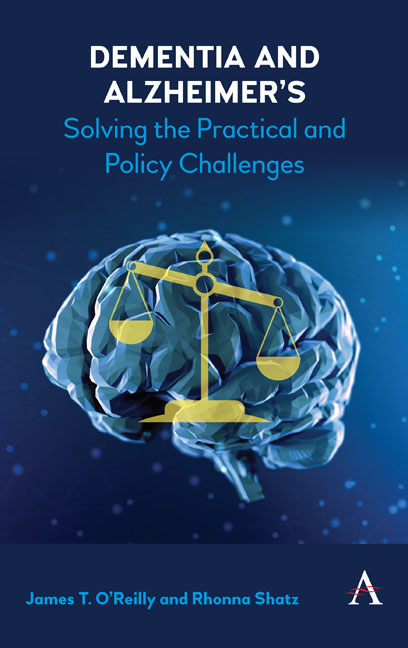Book contents
- Frontmatter
- Contents
- 1 Introduction
- 2 The family dynamics of dementia
- 3 Tort liability related to dementia
- 4 Dementia and private insurance
- 5 Medicare, Medicaid, disability and other government benefits
- 6 Dementia and residential care facilities
- 7 Adult protective services in dementia cases
- 8 Dementia and financial issues
- 9 Dementia in probate and guardianship
- 10 Dementia and employment issues
- 11 Drug research and new product developments for dementia
- 12 Dementia and criminal justice
- 13 Understanding your expert's advice about brain deterioration
- 14 Understanding the causes of Alzheimer's disease
- Appendix: Finding medical reference sources about dementia
- Index
3 - Tort liability related to dementia
- Frontmatter
- Contents
- 1 Introduction
- 2 The family dynamics of dementia
- 3 Tort liability related to dementia
- 4 Dementia and private insurance
- 5 Medicare, Medicaid, disability and other government benefits
- 6 Dementia and residential care facilities
- 7 Adult protective services in dementia cases
- 8 Dementia and financial issues
- 9 Dementia in probate and guardianship
- 10 Dementia and employment issues
- 11 Drug research and new product developments for dementia
- 12 Dementia and criminal justice
- 13 Understanding your expert's advice about brain deterioration
- 14 Understanding the causes of Alzheimer's disease
- Appendix: Finding medical reference sources about dementia
- Index
Summary
Injuries related to the elderly and persons with dementia
The preceding chapter explains the diagnostic issues for dementia evaluation. This chapter addresses both tortious conduct by persons with dementia who are sued as defendants, as well as injuries suffered by persons with dementia when those harms are caused by other persons.
Accidental injuries appear to increase with advanced age, from a variety of physiological causes. CDC data suggests that age and dementia are not causally related but are co-related. Starting at age 65, the risk of developing dementia doubles every 5 years. By age 85 years and older, between 25 percent and 50 percent of people will exhibit signs of Alzheimer's disease. Up to 5.3 million Americans currently have Alzheimer's disease. According to a national survey, dementia affected 37.4 percent of those aged 90 or older. By 2050, CDC expects the number to more than double due to the aging of the population.
The dominant form of dementia, Alzheimer's disease, is the sixth leading cause of death in the United States, and is the fifth leading cause among persons aged 65 and over. Death or serious injury that is related to accidental causes will be the focus of potential tort litigation.
The problems foreseen by attorneys in accepting the tort case of an injured dementia patient include the conventional proofs of cause, event and harm, but also the status of the patient as of the time of the event: did she or he bear legal responsibility for the tortious act, in some way, that a “normal” person would not? The decision to accept representation for a tort liability claim on a contingent fee also must consider the financial losses which the potential plaintiff has suffered, in the instance where the dementia patient missed no work, had no incapacitation from earnings, may be unable to cogently testify and where (in some cases) medical bills had been paid by the state Medicaid agency rather than by the injured person. In the following sections, we describe the typical tort claims which may intersect with the needs of the dementia patient.
- Type
- Chapter
- Information
- Dementia and Alzheimer'sSolving the Practical and Policy Challenges, pp. 11 - 22Publisher: Anthem PressPrint publication year: 2019



